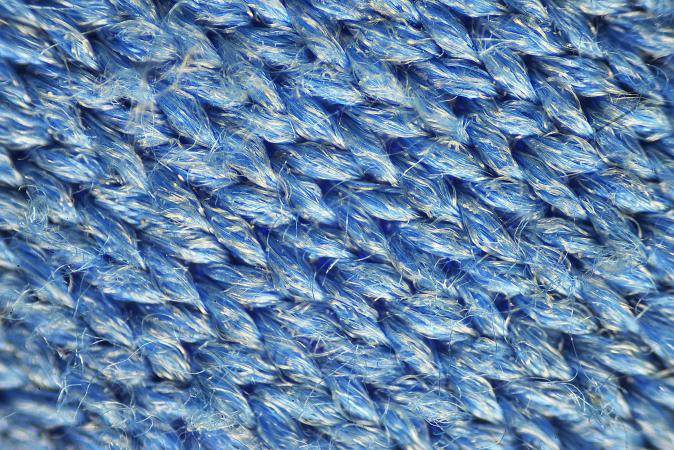Earlier this year, the much-publicized ban on microbeads came into effect, and they can no longer be used in cosmetics and personal care products in the UK. But while the damage caused by these tiny pieces of plastic has been relatively easy to prevent with the implementation of the ban, the next environmental challenge, how to tackle microfibers, is not so straightforward.
Every time we wash a piece of clothing made from synthetic fibres, which includes polyester, nylon and acrylic, pieces of plastic barely visible to the naked eye are released into the water supply, too small to be picked up by water treatment plants. And according to a new report by the International Union for Conservation of Nature (IUCN), of the 9.5 million tonnes of new plastic waste flowing into the ocean each year, an estimated 15-30 per cent comprises fibers shed from clothing. Unlike microbeads, these fibers cannot simply be eliminated from the supply chain, and they are not only released from virgin polyester, but from recycled polyester too.
Dr Lisa Cameron MP, chair of the recently formed All-Party Parliamentary Group on Textiles and Fashion, told British Vogue: “The Blue Planet effect is sweeping across Westminster and it’s time for the fashion industry to take a grip of this movement. The campaign by the ethical cosmetic sector was strong [against microbeads], and if we can gather a similar momentum within the textiles and fashion industries then the government will act: there needs to be a strong policy agenda on the use of microfibres.”
Given that this is a problem with no easy fix, are there any viable alternatives for the industry in terms of textiles? At the recent Future Fabrics Expo in West London, fabric samples made from coffee grounds to orange and apple peel were being showcased, which all offer a cleaner, more sustainable substitute. There are also new textiles on the market, such as GreeOblige made from the castor oil plant, and Tencel, which is biodegradable and made from renewable FSC eucalyptus pulp. And the latest innovation, Refibra, which uses Tencel’s eco process also recycles cotton waste into the mix making it an important tool in the creation of a closed loop fashion and textile industry.
On a personal level, we can start to make a difference by buying fewer synthetic clothes, and when we do, buy the best quality we can afford so they last longer. We can also avoid washing synthetics unnecessarily, and wash them at lower temperatures. Avoiding fluffy fabrics like fleece is also wise, as is choosing natural fabrics. And for the synthetics we simply can’t avoid there are mesh bags on the market that capture microfibers in our washing machines before they enter the water cycle.
Related Reading:
Orange Fiber's Sustainable Fabric
Global Brands Improve Cotton Sustainability



